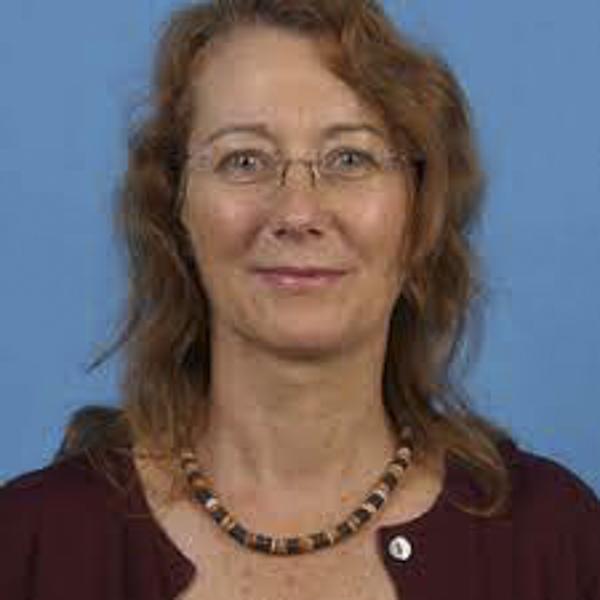 Dr Kristen Williams
Dr Kristen Williams
Principal research scientist, adaptive ecosystem management team, CSIRO
See Dr Williams’ full research profile here.
Research outputs linked to policy change and decision-making
- NSW biodiversity indicator program. From the start of the program (2016), Dr Williams communicated the idea of an outlook report instead of a status report to assess performance against a counterfactual. As a result, the regulation included a requirement to publish a NSW Biodiversity Outlook Report [s14.2(4)]. She led the co-design and writing of the method underpinning the indicators to be reported, which describes measures for biodiversity and ecological integrity using a response-pressures-state-benefit perspective and whole-of-systems approach, including integrated modelling to support prediction and forecasting. This represents a paradigm shift in biodiversity status reporting, which can be continuously extended and improved as technologies, data collection and storage systems become more complete and integrated, and research and development deliver ways to measure across all indicators. The first sets of indicators were used by NSW in their first Fire and the Environment summary report. Dr Williams has been central to the development of the method, the indicators (some that are presently in development), the outlook report and supporting the delivery of the NSW program. Peer-reviewed science publications will soon follow. This model-based indicator approach could be applied nationally to inform a national biodiversity outlook report.
- Remote measurement of habitat condition. In 2012, Dr Williams participated in an internal CSIRO multi-disciplinary workshop on earth observation and informatics. This led to a cross-disciplinary project team of remote sensing scientists and biodiversity modellers who developed the concept and method underpinning the habitat condition assessment system (HCAS). Through her leadership of that project, Dr Williams made connections with state and federal agency stakeholders, resulting in 2 additional phases of funding to develop the operational prototype (2015–2019) and enhancements including an epoch-based time series (2019–2021). State agencies have advanced systems for on-ground observing of habitat condition but they lack a cross-jurisdictional view of habitat condition that can be periodically updated. This has hampered development of targeted environmental policies and programs to prioritise investments and audit outcomes. The first assessment of change in habitat condition is presently being used for internal Department of Agriculture, Water and the Environment (DAWE) annual reporting, and will be included in the 2021 State of the Environment report (land theme). It has been used cautiously in a national grant assessment program (2019). The HCAS approach provides Australia’s first national perspective on habitat condition with capacity to improve. Through Dr Williams’ persistent efforts, CSIRO’s research and development program now includes a team of postdoctoral research fellows and Future Science Platform projects working on different components of what will become dynamic mapping of ecosystem type, extent and condition using remote sensing and field data.
- Biodiversity climate adaptation planning for NRMs – AdaptNRM. This is a pioneering new approach to supporting climate adaptation planning and decision-making by regional natural resource managers. Dr Williams co-led the 2 biodiversity modules. These tools and subsequent reviews and syntheses helped land managers understand, anticipate and plan for ecological change, rather than resist change. The adoption and uptake of these tools provide evidence that practitioners are taking on the substantial challenge to adapt their management to climate change. Research and outreach through these projects has helped practitioners cross the substantial psychological barriers to shift away from traditional, coveted conservation goals. We expect these changes to result both in a better future for Australia’s biodiversity and ecosystems in a changing climate, and in substantial future savings through greater sustainability of NRM investments.
Dr Williams is representing a CSIRO research group with expertise in adaptive ecosystem management.
Current academic employment and positions
- July 2020–present: principal research scientist, adaptive ecosystem management team, Land & Water, CSIRO
- July 2019–June 2020: research director, Living Landscapes (inaugural acting position), Land and Water, CSIRO
- June 2020–present: project leader, CSIRO’s contribution to the 2021 national State of the Environment report, DAWE
- June 2020–present: lead author, land theme in 2021 national State of the Environment report, CSIRO & DAWE
- 2016–2021: project leader, design and implement indicators for the NSW Biodiversity indicator program, NSW Department of Planning, Industry and Environment
- 2012–present: project leader, Habitat condition assessment system, CSIRO & DAWE
- 2015–2020, current: project leader, Recent climate-driven ecological change in Australia, CSIRO & DAWE
- 2015–2020, current: project leader, Data-driven analysis of biological survey gaps, CSIRO & DAWE (Bush Blitz).
Highest qualification
- 1998: PhD, University of Tasmania
Major prizes, medals and honours
- 2019: Land & Water Science Excellence Award for innovative science in global biodiversity assessment system
- 2018: Land & Water Digital Culture Recognition Award as innovators in digital technology supporting science
- 2017: Research Program Award for Excellence in Client Relationships – project co-design and management
- 2013: Climate Adaptation Flagship Recognition Award for coordinating activities for a wider group of staff
- 2001: Royal Australian Planning Institute (Qld) Rural Planning Award for Excellence as a team member of the EPA Biodiversity planning unit contributing to the development of the common nature conservation classification system through the Western Regional Organisation of Councils (WESROC).
Roles on government or regional organisation committees
Links with non-government groups or networks
My Projects
 Current project
Current project Completed project
Completed project
NESP RLH, 2021-2027NESP, 2015-2021NERP, 2012-2015TRaCK, 2005-present
 Dr Kristen Williams
Dr Kristen Williams